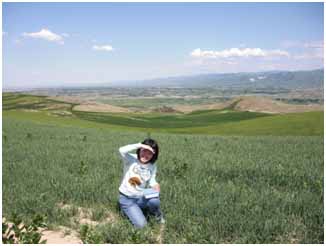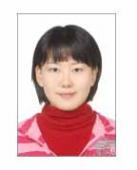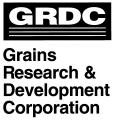russian wheat aphid
Polymorphisms in salivary transcripts of Russian wheat aphid biotypes 1 and 2
| Publication Type | Journal Article | |
| Year of Publication | In Press | |
| Authors | Cui, F.; Smith, C.; Reese, J.; Edwards, O.; Reeck, G. | |
| Journal Title | Journal of Insect Science |
Russian wheat aphid experts convene in Singapore to safeguard Australian crops
.jpg) Scientists from across the globe convened last week
Scientists from across the globe convened last week
Genome Sequence of the Pea Aphid Acyrthosiphon
| Publication Type | Journal Article | |
| Year of Publication | 2010 | |
| Authors | The_International_Aphid_Genomics_Consortium, | |
| Journal Title | PLoSBiology | |
| Volume | 8 | |
| Issue | 2 | |
| Start Page | 1 | |
| Journal Date | 02/2010 | |
| DOI | 10.1371/journal.pbio.1000313 |
Surveillance planning tool for exotic grain pests - Russian wheat aphid
| Publication Type | Report | |
| Year of Publication | 2009 | |
| Authors | Taylor, S.; Dibley, S. | |
| Prepared for | Cooperative Research Centre for National Plant Biosecurity - Technical Report | |
| Pages | 11 | |
| Date | June 2009 | |
| Institution | Plant Health Australia |
Dr Susan Fuller travelled to China to meet with PhD candidate, Ms Bo Zhang and her supervisors Owain Edwards (CSIRO) and Dr Le Kang (Chinese Academy of Science).
TRAVEL DETAILS
FULLERS
When: July 2009
Location: Beijing, China
Summary:
Dr Susan Fuller had the opportunity to guide Ms Bo Zhange in her PhD studies and to further strengthen collaborative relationships during her visit to China.
LOCATION
This project examined the relationship among invasive Russian wheat aphid (RWA) lineages around the world. This information was then used to develop a pathway analysis of historical RWA invasions.
What is the biosecurity problem?
With increasing global trade there is a corresponding increase in the likelihood of RWA incursions from areas where this species is endemic, potentially increasing the biosecurity risk of this species to the Australian grains industry.
The main outputs of this project were to develop:
- a greater understanding of the genetic basis of invasiveness in aphids
- a pathway analysis of invasive RWA populations
-
skills in insect invasion biology/genetics, and
- an improved biosecurity plan for the RWA.
Who are the end-users of your research?
The end users of the pathway analysis of invasive RWA populations are Biosecurity Australia, Plant Health Australia, and the Grains Research and Development Corporation. Research on insect invasion biology is provided to the international research community via publications in high impact science journals.

Bo Zhang sampling in Xinjiang, Western China
STUDENT
PROJECT DETAILS
Complete
Supervisor
Dr Owain Edwards (CSRIO), Dr Susan Fuller (QUT) and Dr Le Kang (Chinese Academy of Science)
Supervising Institution
Queensland University of Technology
Term
January 2009 - January 2012
LOCATION
This project will improve the level of preparedness for, and the sustainable resistance to, the Russian wheat aphid. it will also assist Australia's grain industry to remain free of Russian wheat aphids.
What is the biosecurity problem?
Russian wheat aphid has invaded all major wheat growing regions of the world except Australia. To ensure that Australia's breeding strategy has the capacity to provide resistant wheat lines, it is necessary to understand the mechanisms underlying virulence.
The main output of this project is to:
- improve level of preparedness for Russian wheat aphid incursions into Australia, and
- develop a strategy for Australian wheat breeders to achieve sustainable and stable resistance to Russian wheat aphid, reducing the need for insecticides.
Who will be the end-users of this research?
The project will determine what level of risk is posed by genetic changes in the Russian wheat aphid. Results will be discussed with the Australian grains industry. The focus with industry will be to help create an understanding of the risk posed by the Russian wheat aphid, particularly in relation to their breeding program. This will benefit the wheat industry's level of preparedness and ensure that its principal strategy of resistant varieties remains viable.
PROJECT LEADER

Dr Owain Edwards
Project Leader CRC40006: Russian Wheat Aphid
Owain.Edwards@csiro.au
Phone: 08 9333 6401
Fax: 08 9333 6646
Read More
PROJECT DETAILS
Active
Term
August 2006 - September 2012
Budget
$373,800 (cash and in-kind support)





